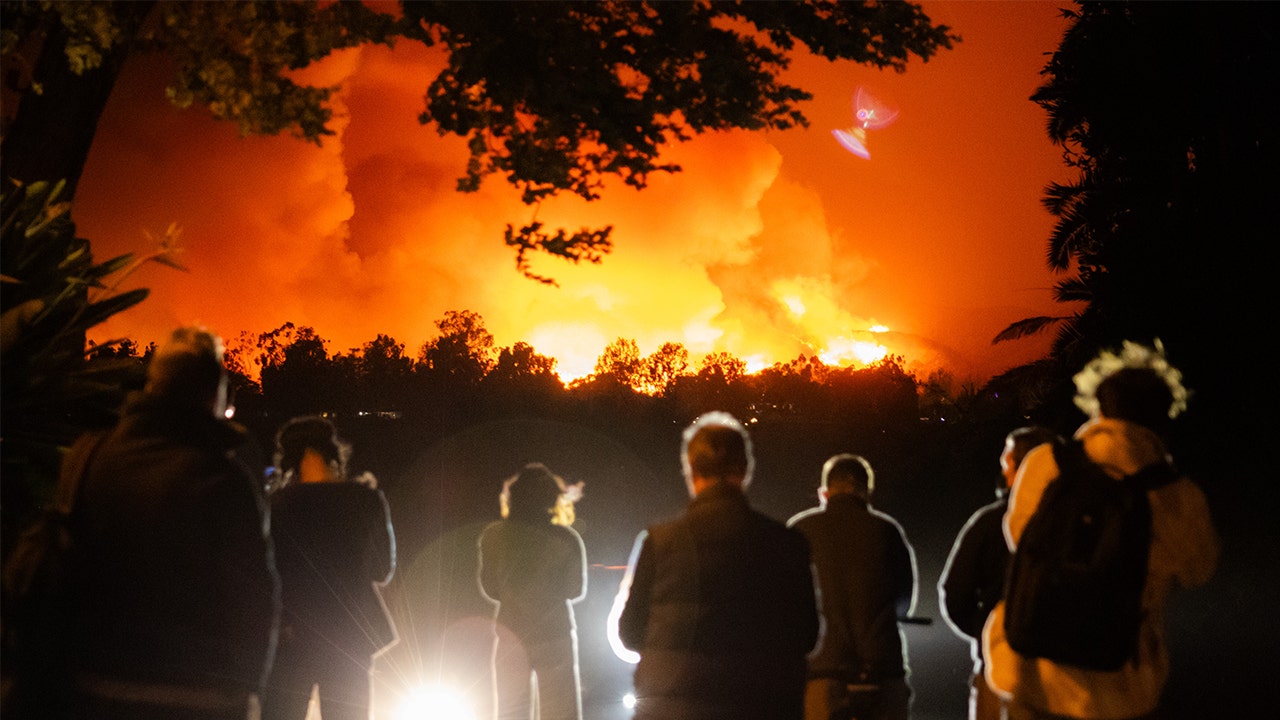Red Tape or Rescue? Understanding L.A.’s Wildfire Response and Its Impact on Private Aid
As wildfires sweep across Los Angeles, devastating homes and businesses, residents and local organizations are increasingly frustrated by the bureaucratic red tape that seems to hinder vital private aid efforts. The ongoing struggle between regulatory measures and the urgent need for immediate assistance raises critical questions: Are these regulations designed to protect the community, or are they in fact obstructing timely disaster response?
Wildfires in Los Angeles: A Growing Concern
Wildfires have become an all-too-frequent occurrence in California, particularly in areas like Los Angeles, where dry conditions and Santa Ana winds create a perfect storm for fire outbreaks. According to Cal Fire, more than 1.5 million acres were burned in California in the last wildfire season alone. With climate change exacerbating the situation, these events are expected to become more frequent and severe.
In the face of such disasters, private security companies and volunteer organizations often step up to provide immediate relief, protecting properties and aiding in evacuation efforts. However, a tangled web of regulations and permits can hinder their ability to act swiftly and effectively.
The Role of Private Aid in Disaster Response
Private aid plays a crucial role in disaster response for several reasons:
- Immediate Assistance: Private security firms can mobilize quickly, providing on-the-ground support before government agencies can fully deploy.
- Community Engagement: Local businesses and residents are often more familiar with their communities than outside agencies, enabling them to offer targeted support.
- Resource Mobilization: Private organizations can leverage their networks to gather resources such as food, shelter, and medical supplies.
Despite these advantages, many homeowners and business owners in Los Angeles have reported feeling powerless due to the strict regulations governing private aid. The current system often requires extensive permits and compliance checks, creating delays that can be costly in times of crisis.
Understanding the Regulations
The regulations surrounding disaster response in California, particularly in Los Angeles, are informed by a desire to ensure safety and prevent chaos during emergencies. However, these regulations can often be perceived as excessive red tape. Key aspects include:
- Permit Requirements: Private security firms must obtain permits to operate in disaster areas, which can take time to process.
- Liability Concerns: Businesses may fear legal repercussions if they act without proper authorization.
- Coordination with Public Agencies: Private aid must often work in conjunction with local government agencies, adding layers of bureaucracy.
These regulations, while designed to maintain order and safety, can delay the critical aid that communities need during wildfires. Many argue that in a state of emergency, the need for immediate action should outweigh bureaucratic processes.
Voices from the Ground: Frustration and Resilience
Residents in wildfire-affected areas have expressed their frustration with the bureaucratic hurdles that prevent timely private aid. For example, during the recent wildfire season, a local security firm attempted to deploy personnel to protect homes but faced significant delays due to permit applications. Homeowners reported feeling abandoned, as they watched flames approach their properties while waiting for the green light to act.
In response to these challenges, some community leaders are advocating for changes in the regulations governing private aid. They argue that a streamlined process for emergency situations would allow for quicker mobilization of resources without compromising safety. Initiatives to create a fast-track permit process for private aid during declared emergencies are gaining traction, indicating a potential shift in how such situations are managed.
Balancing Safety and Efficiency
The central challenge lies in finding a balance between maintaining safety standards and enabling rapid response. Some proposed solutions include:
- Emergency Temporary Permits: Implementing a system that allows for temporary permits to be issued quickly during disasters could expedite private aid efforts.
- Pre-established Protocols: Establishing clear guidelines for private security firms to follow in emergencies can help streamline the process.
- Public-Private Partnerships: Encouraging collaborations between government agencies and private organizations can foster a more coordinated approach to disaster response.
By adopting a more flexible regulatory framework, Los Angeles can empower its residents and businesses to act swiftly in times of crisis, enhancing community resilience against wildfires.
The Way Forward: Community Involvement and Advocacy
As wildfires continue to threaten lives and property in Los Angeles, community involvement and advocacy will play a critical role in shaping the future of disaster response. Residents, business owners, and local organizations can work together to push for legislative changes that prioritize rapid response capabilities. Engaging with local representatives to express concerns about bureaucratic hurdles can also help bring about meaningful change.
Moreover, fostering a culture of preparedness and resilience within communities is essential. This includes:
- Education and Training: Hosting workshops on disaster preparedness can equip residents with knowledge and resources.
- Building Networks: Encouraging neighbors to form support networks can enhance collective readiness in the event of a wildfire.
- Collaborative Planning: Engaging in community planning efforts can help ensure that private aid strategies are incorporated into official disaster response plans.
In conclusion, while regulations are essential for maintaining safety during wildfires, the current bureaucratic landscape in Los Angeles often hinders private aid efforts. By advocating for more efficient processes and fostering community resilience, residents can not only protect their homes but also contribute to a more effective disaster response framework. As the climate crisis continues to unfold, addressing these issues becomes increasingly urgent for the safety of all Angelenos.
See more CNN Headline


